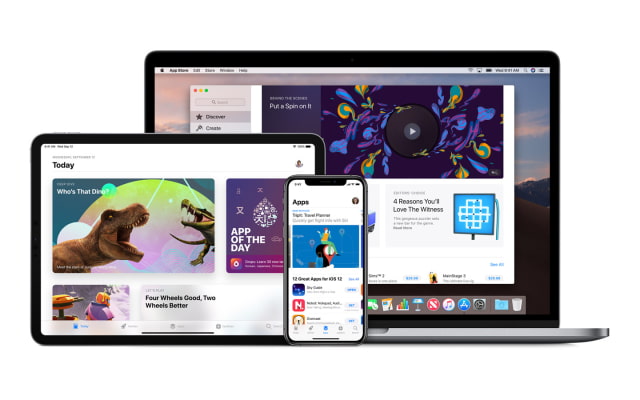EU Reaches Preliminary Conclusion That Apple is in Breach of Competition Law

The European Commission has announced the preliminary conclusion of its Apple antitrust investigation, finding the company in breach of competition law.
The European Commission has informed Apple of its preliminary view that it distorted competition in the music streaming market as it abused its dominant position for the distribution of music streaming apps through its App Store. The Commission takes issue with the mandatory use of Apple’s own in-app purchase mechanism imposed on music streaming app developers to distribute their apps via Apple’s App Store. The Commission is also concerned that Apple applies certain restrictions on app developers preventing them from informing iPhone and iPad users of alternative, cheaper purchasing possibilities.
Here is the commissions’ statement of objections…
—–
Statement of Objections on Apple’s rules for distribution of music streaming apps
The Commission preliminary finds that Apple has a dominant position in the market for the distribution of music streaming apps through its App Store. For app developers, the App Store is the sole gateway to consumers using Apple’s smart mobile devices running on Apple’s smart mobile operating system iOS. Apple’s devices and software form a “closed ecosystem” in which Apple controls every aspect of the user experience for iPhones and iPads.
Apple’s App Store is part of this ecosystem and the only app store that iPhone and iPad users can use to download apps for their mobile devices. The Commission found that users of Apple’s devices are very loyal to the brand and they do not switch easily. As a consequence, in order to serve iOS users, app developers have to distribute their apps via the App Store, subject to Apple’s mandatory and non-negotiable rules.
The Commission’s concerns, as outlined in the Statement of Objections, relate to the combination of the following two rules that Apple imposes in its agreements with music streaming app developers:
● The mandatory use of Apple’s proprietary in-app purchase system (“IAP”) for the distribution of paid digital content. Apple charges app developers a 30% commission fee on all subscriptions bought through the mandatory IAP. The Commission’s investigation showed that most streaming providers passed this fee on to end users by raising prices.
● “Anti-steering provisions” which limit the ability of app developers to inform users of alternative purchasing possibilities outside of apps. While Apple allows users to use music subscriptions purchased elsewhere, its rules prevent developers from informing users about such purchasing possibilities, which are usually cheaper. The Commission is concerned that users of Apple devices pay significantly higher prices for their music subscription services or they are prevented from buying certain subscriptions directly in their apps.
The Commission’s preliminary view is that Apple’s rules distort competition in the market for music streaming services by raising the costs of competing music streaming app developers. This in turn leads to higher prices for consumers for their in-app music subscriptions on iOS devices. In addition, Apple becomes the intermediary for all IAP transactions and takes over the billing relationship, as well as related communications for competitors.
If confirmed, this conduct would infringe Article 102 of the Treaty on the Functioning of the European Union (TFEU) that prohibits the abuse of a dominant market position.
The sending of a Statement of Objections does not prejudge the outcome of an investigation.
—–
Executive Vice-President Margrethe Vestager, in charge of competition policy, says “Due to Apple’s rules on the app store, music streaming providers essentially have two choices. Either they pay a 30% fee on each subscription bought in the App Store and raise their prices without being able to inform users of cheaper offers. Or they lose access to Apple device users for paid subscriptions.” She adds, “And of course, App Store rules are a concern for many app developers beyond music streaming. Because they depend on Apple App Store as a gatekeeper to access users of Apple’s iPhones and iPads. This significant market power cannot go unchecked as the conditions of access to the Apple App Store are key for the success of app developers.”
Apple will now have the opportunity to respond. Please download the iClarified app or follow iClarified on Twitter, Facebook, YouTube, and RSS for updates.






